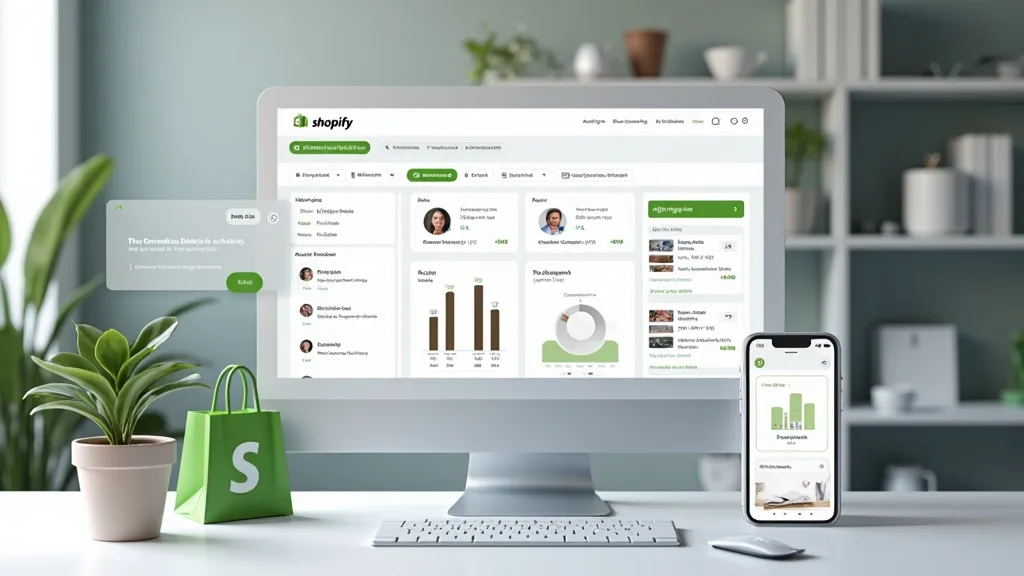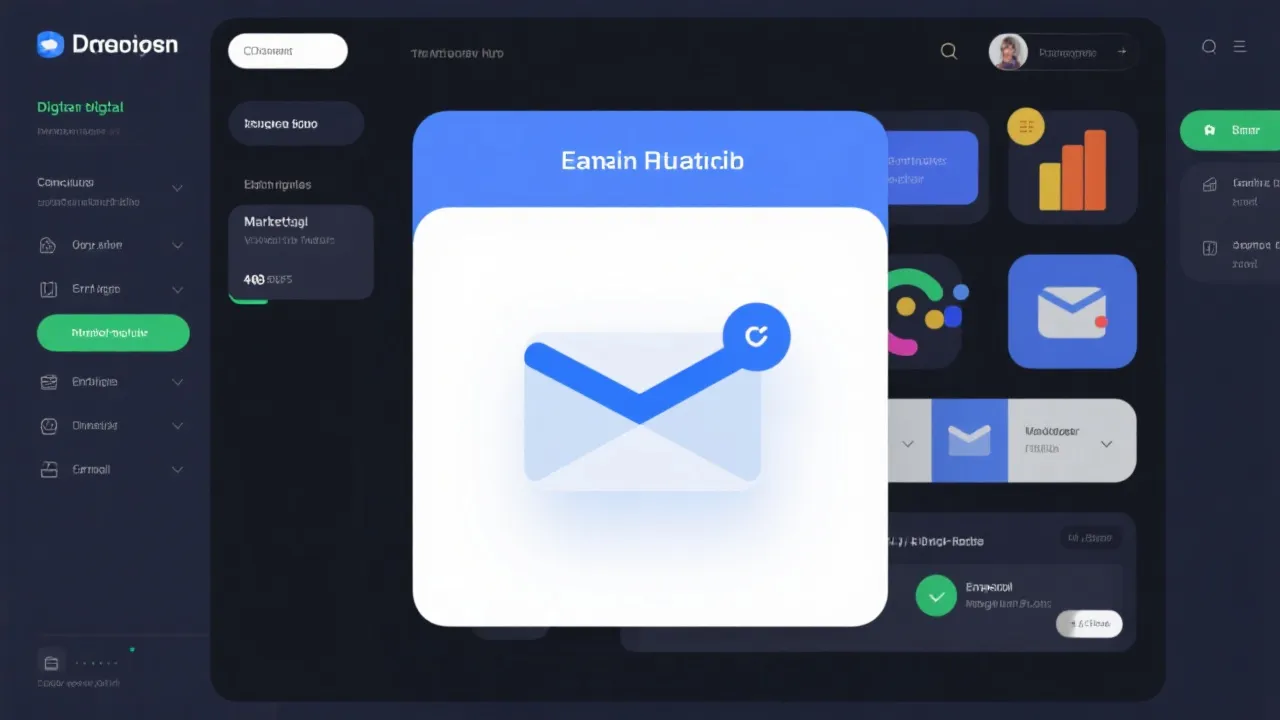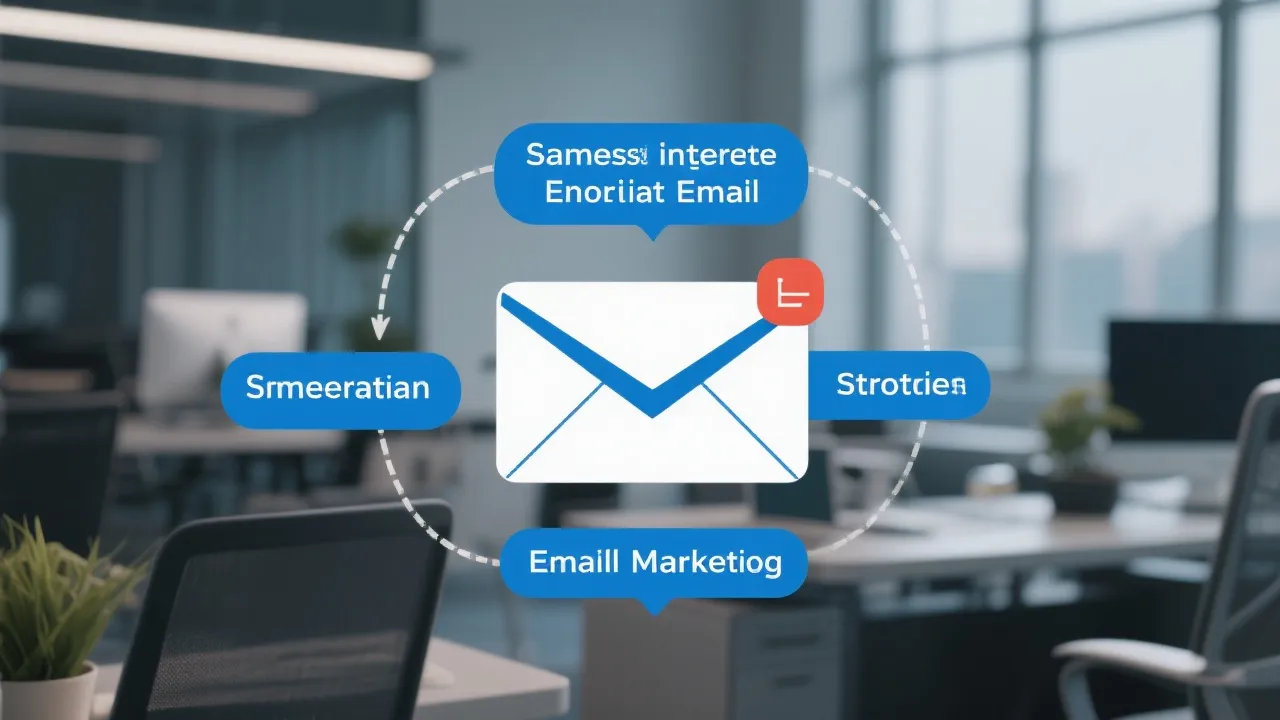Mastering Shopify Marketing Automation
This guide explores the intricacies of Shopify Marketing Automation, emphasizing strategies to enhance e-commerce efficiency. Shopify offers various tools that streamline marketing processes, allowing businesses to automate tasks such as email campaigns, customer segmentation, and data analytics, paving the way for improved customer engagement and sales performance.

Understanding Shopify Marketing Automation
As the world of e-commerce continues to expand, leveraging tools like Shopify Marketing Automation becomes critical for businesses aiming to stay competitive. This technology enables online retailers to automate marketing processes, improving efficiency and enhancing customer engagement. With automation, businesses can design targeted campaigns, manage customer interactions, and analyze performance metrics, all from a centralized platform. This not only saves time and effort but also helps businesses build deeper customer relationships through personalized experiences.
Shopify Marketing Automation employs various techniques to enhance the effectiveness of marketing strategies. It capitalizes on customer behavior patterns, predictive analytics, and real-time data processing to tailor interactions based on what customers actually want and need. In an environment where customers receive numerous marketing messages daily, targeted communication can significantly improve engagement rates and reduce marketing resistance. The future of marketing lies in these automated systems that allow businesses to focus on high-level strategies while leaving repetitive tasks to technology.
Benefits of Shopify Marketing Automation
Utilizing Shopify Marketing Automation offers several advantages. Firstly, it allows businesses to execute personalized marketing strategies with ease, providing customized experiences to different customer segments. This personalization helps increase conversion rates and boosts customer loyalty. Studies have shown that personalized emails improve click-through rates significantly compared to generic campaigns. When customers feel recognized and valued through personalized messages, they are more likely to engage with brands, make purchases, and refer friends and family.
Secondly, automation tools save time by reducing the need for manual intervention in repetitive tasks, allowing marketers to focus on strategic decisions that drive growth. By automating tasks such as email campaigns, social media posting, and customer segmentation, Shopify users can ensure that their marketing efforts operate smoothly and consistently over time. This not only enhances productivity but also reduces the likelihood of human error, leading to better overall campaign performance.
Another advantage of Shopify Marketing Automation is its ability to generate actionable insights through data analytics. Businesses can track customer interactions across various channels, measuring the effectiveness of different campaigns in real time. This data-driven approach enables businesses to make informed decisions, refine their strategies, and allocate resources efficiently. Ultimately, marketing automation helps transform data into meaningful actions that drive enhanced business performance.
Key Features of Shopify Marketing Automation
- Email Campaign Automation: Shopify enables businesses to automate email marketing, sending targeted messages based on customer behavior and preferences. This feature can drastically improve retention rates as customers receive relevant content at the right times.
- Customer Segmentation: The platform provides tools to segment customers into distinct groups, allowing for tailored marketing strategies that resonate with specific audiences. Effective segmentation is key to delivering messages that appeal to different demographics.
- Performance Analytics: Access comprehensive analytics to track the effectiveness of marketing campaigns and make informed decisions backed by data insights. By understanding which campaigns drive sales and engagement, businesses can double down on successful strategies and rethink those that fall flat.
- Integration Capabilities: Shopify easily integrates with other tools and platforms, ensuring a seamless experience across different marketing channels. This connectivity enables businesses to unify their marketing efforts under one dashboard, enhancing operational efficiency.
- Dynamic Price Adjustments: Shopify can automate price adjustments based on factors such as customer location, buying history, and trends, allowing businesses to remain competitive in a fierce market.
- Automated Customer Feedback Loops: By setting up automatic requests for customer feedback post-purchase, businesses can gain insights into their offerings while fostering a culture of engagement and transparency.
Implementation Steps for Shopify Marketing Automation
Embarking on Shopify Marketing Automation involves several strategic steps. Initially, businesses should clearly define their marketing objectives and identify key customer segments to target. Following this, they should select appropriate automation tools and features within Shopify that align with these objectives.
- Define Objectives: Clearly outline the goals your business aims to achieve through automation, such as increased sales, improved customer retention, or enhanced brand visibility. This vision will guide your future strategies and help in measuring success.
- Analyze Customer Data: Gather and analyze customer data to understand behavior and preferences. This step not only informs the segmentation and personalization processes but also lays the groundwork for effective targeting.
- Select Automation Tools: Choose the Shopify tools that best suit your business needs, focusing on features like email campaigns, customer segmentation, and analytical capabilities. It's crucial to select tools that complement your existing marketing strategy.
- Design and Launch Campaigns: Create campaigns tailored to your target segments and launch them, ensuring they align with your defined objectives. Consider A/B testing different variations of your campaigns to determine their effectiveness.
- Monitor and Adjust: Continuously monitor the performance of your automated campaigns and make adjustments as needed to optimize results. This might include tweaking the messaging, testing different timing for email sends, or even altering visual components such as images and layout.
- Collect Feedback: Post-launch, solicit feedback from both customers and team members to assess the perceived effectiveness of your campaigns. This step is crucial to understanding the impact of your automated communications.
Challenges and Considerations
While Shopify Marketing Automation is powerful, it comes with its set of challenges. Businesses must ensure their data management practices are robust to protect customer information. As GDPR and other regulations on personal data continue to evolve, businesses cannot afford to ignore the ethical implications of data usage. It's vital for brands to obtain explicit consent from customers before using their data for marketing automation purposes.
Additionally, crafting personalized content requires a deep understanding of customer preferences, which can be resource-intensive. Companies may need to invest time and effort into customer research, developing rich customer personas that can guide marketing strategies. Failure to understand your audience can lead to irrelevant messaging and wasted resources.
Regular monitoring and updating of tactics ensure that automation efforts remain relevant and effective in an ever-evolving market. Staying ahead of trends and continuously optimizing campaigns is paramount to maintaining customer engagement and preventing automation fatigue, where customers might become uninterested due to overly repetitive or irrelevant automated messages.
Comparison of Popular Shopify Marketing Automation Tools
| Tool | Features | Pricing |
|---|---|---|
| Klaviyo | Email marketing, SMS campaigns, customer insights, time zone scheduling, advanced reporting | Based on contacts, starting with an affordable-tier option, suitable for various business sizes |
| Omnisend | Multi-channel marketing, landing pages, customer segmentation, automation workflows | Offers affordable and tiered subscription plans based on features used and size of contact list |
| GetResponse | Email automation, web push notifications, CRM integration, landing pages, webinar hosting | Subscription-based pricing, starting from basic to advanced tiers, responsive customer support included |
| Mailchimp | Email marketing automation, customer insights, social media integration, reporting tools | Offers free tier with limited features, and comprehensive paid plans based on audience size |
| ActiveCampaign | Email marketing, CRM features, automation, land-page creation, dynamic content personalization | Pricing based on the number of contacts and features, starting with entry-level plans |
| HubSpot | Comprehensive CRM tools, email marketing, landing page builder, social media tools, analytics | Freemium model, with more advanced features available at different pricing tiers |
FAQs on Shopify Marketing Automation
What is Shopify Marketing Automation? It is a process that involves using Shopify's tools to automate marketing tasks, such as emails, product recommendations, and performance analytics, to improve customer engagement. This enables businesses to reach customers with the right message at the right time without requiring continual manual oversight.
How can automation improve e-commerce performance? Automation streamlines marketing processes, allowing businesses to offer personalized experiences, reduce manual efforts, and optimize resource allocation. This enhances overall performance by ensuring that marketing strategies are executed efficiently, effectively, and in real-time.
Is Shopify Marketing Automation suitable for all business sizes? Yes, it is suitable for businesses of all sizes, as Shopify provides scalable solutions that can be tailored to meet specific business needs. Larger businesses can utilize more complex automation flows while smaller operations can streamline their efforts within their capacity.
What are the common challenges faced with Shopify Marketing Automation? Common challenges include managing and securing customer data, creating effective personalized content, and ensuring ongoing optimization of automated campaigns. It's also essential to stay updated with the latest marketing trends and changes in customer behavior.
How do I measure the success of my marketing automation efforts? Businesses can measure success through various key performance indicators such as open rates, click-through rates, conversion rates, and overall engagement metrics. Additionally, customer lifetime value and retention rates are pivotal in evaluating long-term effectiveness.
In conclusion, mastering Shopify Marketing Automation is essential for e-commerce businesses aiming to enhance their marketing efforts. By implementing these tools and strategies, businesses can streamline their operations, create more impactful customer interactions, and ultimately drive growth in today's competitive e-commerce landscape. Given the rapid pace at which the digital marketing environment is evolving, leveraging automation tools will not only save time and resources but also position your business for success in the long run.
As we look to the future of e-commerce, it’s clear that those who can effectively utilize technology will gain competitive advantages. Brands will need to embrace automation not merely as a tool for efficiency but as a critical component of their overall marketing strategy. Investing time in understanding and implementing Shopify Marketing Automation solutions can lead to more meaningful engagements with customers, resulting in higher sales and enhanced brand loyalty. Therefore, businesses should consider taking the next steps towards integrating these systems into their operations if they have not done so already.
Furthermore, adaptation to emerging technologies and consumer trends should always be a focus. For instance, with the rise of AI and advanced data analytics, marketing automation is only expected to become more sophisticated and effective. Companies should be prepared to revisit and revise their marketing strategies as new capabilities come into play. This continuous journey of learning, adapting, and optimizing will allow businesses not only to keep pace with changes but also to innovate within their markets.
Finally, remember that while technology enables automation, the human element of understanding your customer’s journey, preferences, and needs remains irreplaceable. Combining automated systems with genuine customer care can create a potent recipe for success in any e-commerce venture. Therefore, as you implement Shopify Marketing Automation, ensure that your teams remain connected to customer experiences, fostering a holistic approach to customer engagement and satisfaction.










